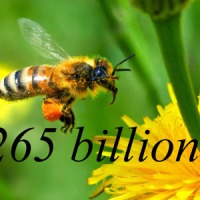 A fast growing body of evidence suggests that the great GM experiment is not only a failure, but that the consequences of this misguided (some would say malign) technology are threatening to spiral out of control. The following is a selection of articles collected over the past few months, but representing no more than just the tip of a very large iceberg.
A fast growing body of evidence suggests that the great GM experiment is not only a failure, but that the consequences of this misguided (some would say malign) technology are threatening to spiral out of control. The following is a selection of articles collected over the past few months, but representing no more than just the tip of a very large iceberg.
Monsanto’s “Superweeds” Gallop Through Midwest
By Tom Philpott
Tue Jul. 19, 2011 10:30 AM PDT
Back in the mid-’90s, Monsanto rolled out seeds genetically engineered to withstand its Roundup herbicide. To ensure huge growth potential, the company shrewdly chose the most widely planted, highly subsidized US crops to grace with its new “Roundup Ready” technology: corn, soy, and cotton.
The pitch was simple and powerful: No longer would large-scale farmers need to worry about weeds. All they would have to do was douse their fields with Roundup, which would wipe out all plant life except the desired crop. Farmers leapt at the technology. It represented a fantastic labor-saving opportunity, allowing them to manage ever-larger swaths of land without having to pay more workers.
Today, Roundup Ready crops blanket US farmland. According to USDA figures, 94 percent of soybeans and more than 70 percent of corn and cotton planted in the US contain the Roundup-resistant gene. Back-of-the envelope calculations tell me that nearly 200,000 square miles of prime farmland—a land mass about two-thirds the size of Texas—now grow crops rigged to flourish amid an annual monsoon of Roundup.
Well, in what is surely the least surprising, most-anticipated major development in the history of US agriculture, farmers are discovering that when you spend years dousing land with a single herbicide, ecosystems adapt. Roundup Ready crops, meet Roundup-defying weeds.
Read the full article here: http://motherjones.com
 Monsanto GM Corn in Peril: Beetle develops Bt-resistance
Monsanto GM Corn in Peril: Beetle develops Bt-resistance
Posted on August 24, 2011
By Rady Ananda
Nature herself may be the best opponent of genetically modified crops and pesticides. Not only plants, but insects are also developing resistance. The Western rootworm beetle – one of the most serious threats to corn – has developed resistance to Monsanto’s Bt-corn, and entire crops are being lost.
Farmers from several Midwest states began reporting root damage to corn that was specifically engineered with a toxin to kill the rootworm. Iowa State University entomologist Aaron Gassmann recently confirmed that the beetle, Diabrotica virgifera virgifera, has developed resistance to the Bt protein, Cry3Bb1.
Read the full article here: http://foodfreedom.wordpress.com
Armed response
Knowing what we know about Monsanto and its brothers in arms their response to such developments, e.g. more of the same, is surprising only in the sense of its mind-boggling stupidity. In what has been described as a “Roundup monsoon” American farmers trapped on the GM treadmill are left with little choice other than to dump increasing quantities of Roundup on their crops, while many are resorting to supplementing Roundup with other, more powerful chemicals in an effort to regain control. All this is good news for Monsanto who have seen profits from their toxic products go through the roof. Meanwhile work is ongoing on a new generation of crops resistant to the chemical Dicamba. Please read this report if you want to become more aware of exactly what bringing this deeply unpleasant poison into the mainstream (and onto your dinner table) will mean.
Roundup Ready
Roundup is a chemical herbicide so common that it has become more or less a mainstay in the arsenal of many ordinary gardeners and can be found on the shelf at any DIY store or garden centre. Routinely used in public spaces, schools, and playing fields Roundup is the world’s best-selling herbicide. In fact things have come so far that many local authorities, growers, and householders would be hard pressed to manage without it. It seems logical to conclude that Roundup would not have conquered the market if it wasn’t safe, or that it is safe as long as the manufacturer’s instructions are followed. However, recent, and not so recent evidence suggests that neither assumption is correct.
 Roundup and birth defects: Is the public being kept in the dark?
Roundup and birth defects: Is the public being kept in the dark?
The pesticide industry and EU regulators knew as long ago as the 1980s-1990s that Roundup, the world’s best-selling herbicide, causes birth defects – but they failed to inform the public. This report, co-authored by international scientists and researchers, reveals that the industry’s own studies (including one commissioned by Monsanto) showed as long ago as the 1980s that Roundup’s active ingredient glyphosate causes birth defects in laboratory animals.
Read the full article and download the report here: http://earthopensource.org
Behind the Label: Roundup Weedkiller
A weedkiller that kills a lot more than simply weeds? If it’s worse than the poison it’s no cure at all, says Pat Thomas
A weed, as an insightful gardener once said, is just a plant growing in the wrong place. But to deal with the simple problem of plants growing in the wrong places, globally we spend millions each year on chemicals designed to kill them – chemicals such as Monsanto’s Roundup. The name will be familiar to GM watchers – all over the world food crops are being genetically modified (also by Monsanto) to be ‘Roundup resistant’, which allows farmers to spray this pesticide with impunity around their crops.
This irresponsible type of agriculture has led to increased resistance to the herbicide and the emergence of ‘superweeds’ – and thus increased sales of glyphosate, the active ingredient in Roundup, which farmers have to use more and more of in order to get the same effect.
Read the full article here: http://www.theecologist.org
 The Final Solution
The Final Solution
For a science that sells itself as the solution to the world’s food supply problems GM technology certainly has a knack for turning everything it touches into a crock of toxic shit. In fact, the more one studies the evidence the more the genetic manipulation of organisms, both plant and animal, looks like a failed conceit based upon old scientific assumptions about how the world works. In the new and emerging paradigm, with science finally acknowledging the validity of the knowledge long-held by the world’s wisdom traditions, mankind and nature are seen not as separate entities permanently at each other’s throats, but as inextricably entwined expressions of the same life force. It’s surely becoming blindingly obvious to all that continuing to wage chemical and technological war against nature represents the absolute apex of mankind’s suicidal folly.
Read Full Post »
 90%
90% A Silent Forest – The Growing Threat, Genetically Engineered Trees (2009)
A Silent Forest – The Growing Threat, Genetically Engineered Trees (2009)


 10
10



















You must be logged in to post a comment.